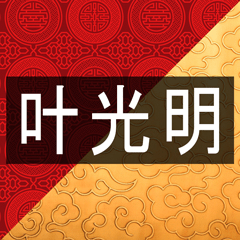
Is Lu ShaYe A Lone Wolf Or Leader Of The Pack?
In a recent interview, the Chinese Ambassador to France, Lu ShaYe (卢沙野), was asked for China's view of the status of Crimea which Russia annexed in 2014. Mr Lu responded that countries such as Ukraine could not rely on international law to defend their sovereignty. He then went much further and added that “even (other) former Soviet countries don't have an effective status under international law because there is no international agreement under international law to confirm their status as sovereign countries.”
Three of those countries, Lithuania, Latvia and Estonia, summoned China's representatives to clarify Mr Lu's comments. Ukrainian presidential aide Mykhaylo Podolyak described Lu’s take on Crimea as "absurd". "If you want to be a major political player, do not parrot the propaganda of Russian outsiders”. Other European Union foreign ministers condemned the remarks as “totally unacceptable.”
Later Chinese Foreign Ministry spokeswoman Mao Ning rejected Mr Lu's position, saying Beijing respected the sovereignty, independence and territorial integrity of all countries and upheld the purposes and principles of the United Nations Charter. The Chinese embassy in Paris issued a formal statement saying Lu’s comments were “not a policy declaration … but the expression of personal viewpoints during a television interview”. A transcript of Lu's remarks posted on the Chinese embassy's official WeChat account were subsequently deleted.
This is not the first time that Lu ShaYe has been at the centre of controversy. In 2019 he accused some Canadian politicians of supporting "violent criminals" in Hong Kong, in response to criticism from Canadian officials over China's treatment of protesters in Hong Kong. Lu Shaye's comments were widely criticised by Canadian politicians and media outlets, with many accusing him of making inappropriate and inflammatory remarks. In April 2020, months after COVID-19 first erupted in the central Chinese city of Wuhan and started spreading around the world, the French foreign ministry summoned Lu over an article posted on the Chinese embassy's website. The post, ascribed to an anonymous Chinese diplomat, insinuated that residents of retirement homes in France had been left to die of hunger and disease as COVID spread in Europe.
Mr Lu’s comments came at a strange time. After a recent visit to Beijing where he spent time with President Xi JinPing, French president Macron caused consternation in Western capitals when he said Europe should not follow America, but instead avoid confronting China over its stated goal of seizing the democratic island of Taiwan by force. That French pro-China comment caused Manfred Weber, head of the centre-right European People’s Party, the largest party in the European Parliament, to describe the French president’s comments as “a disaster” and “made clear the great rift within the European Union in defining a common strategic plan against Beijing.” At a time when France seemed more pro-China than some other European nations, why would Ambassador Lu choose specifically to make the inflammatory remarks in France? The French foreign ministry said Lu would be given “a stern rebuke”.
Is Lu simply a “lone wolf”? Neysun Mahboubi, a research scholar at the Center for the Study of Contemporary China at the University of Pennsylvania, said on Twitter that Lu’s comments were “totally stupid” and that “the level of incompetence is just staggering”.
Or is Lu part of a wider group of ‘Wolf Warriors’, a nickname given to Chinese envoys who respond vehemently to critics they perceive as hostile to China? Should his comments be seen “as an indication of China's growing assertiveness in the international arena and its willingness to push back against criticism from Western countries?” Is Lu a lone wolf or leader of the pack?
As China increasingly assumes a leading position on the world stage, pray for China’s diplomats that they might use wise words and embrace positive policies.
Pray for Lu ShaYe specifically that he might have an encounter with the Prince of Peace.
Pray for the Beijing leadership as they craft China’s foreign policies in a changing world.

